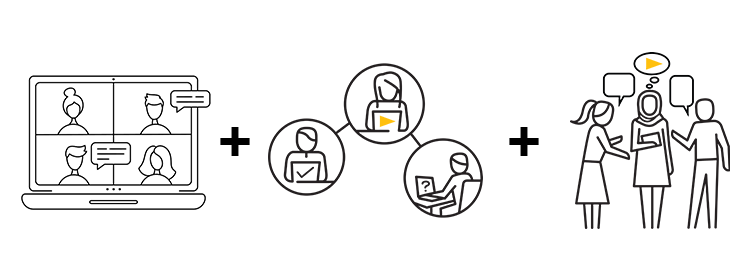
In 30 seconds
Soft skills have taken centre stage in the 4th Industrial Revolution, becoming integral to employability and business success. These versatile abilities, spanning communication, teamwork, problem-solving, emotional intelligence, ethics, and global citizenship, are now more critical than ever. Deloitte Access Economics forecasts that by 2030, two-thirds of jobs will heavily depend on soft skills, marking a significant workforce transformation. Businesses, especially in sales and customer service, can gain a competitive edge and increase revenue by fostering these skills. Enhanced interpersonal and self-management proficiencies create healthier work environments. Contrary to the belief that soft skills are innate, they can be acquired. Embracing and nurturing these capabilities are essential for success in the evolving world of work.
In 1.5 minutes
Soft skills have become the new hard skills in the 4th Industrial Revolution, underpinning employability and enterprise capabilities. These universal skills which include communication, teamwork, problem-solving, emotional judgment, professional ethics, and global citizenship are more critical than ever.
Deloitte Access Economics projects that, by 2030, two-thirds of all jobs will heavily rely on soft skills, compared to just half in 2000. These roles are growing at 2.5 times the rate of other jobs, marking a significant workforce shift.
To succeed in this changing landscape, businesses need to embrace these skills. Effective soft skills, especially in sales and customer service, offer a competitive edge, potentially significantly increasing revenue.
Enhanced interpersonal and self-management skills like teamwork, communication, problem-solving, and critical thinking create a healthier, more productive, and happier work environment.
Sales and service skills epitomise these capabilities, but they are often misunderstood. Contrary to the myth that great salespeople are born, not made, most can learn to apply soft skills effectively.
However, soft skills have been traditionally overshadowed by technical skills. This paradigm needs to shift. Building relationships based on mutual respect, clear intentions, and effective communication fosters trust, transparency, and positive outcomes.
To develop soft skills, consider the power of digital credentials. These focused, learning achievements provide a competitive edge in the job market and confirm what learners know, understand, and can do, with evidence to back it up.
At Barrett, we have created a Soft Skills competency framework including our certified Sales Essentials Online programs which have been designed to develop and enhance soft skills, especially in sales and customer service.
Many clients have experienced the benefits of regular, time-efficient soft skills training, not just in sales results but also in improving relationship quality. These practices can benefit a broader workforce and community.
Embracing and developing soft skills is crucial for thriving in the evolving world of work.
Remember everybody lives by selling something.
Testimonial
“The team is winning larger, profitable sales in highly competitive, commoditised market places and winning the ‘share of mind battle’ with our clients & prospects.”
Related Topics
Sales Skills Future-Proof Careers and Margins
Sales Performance – What Are We Really Measuring?
Sales Training – Sales Mastery Mindset
A Year Ago
Three Years Ago
Win³ – Tendering for You, Your Client and for the Benefit of Others
Ten Years Ago
Customer Experience Management (CX) Will Replace CRM


New Article Email Notification